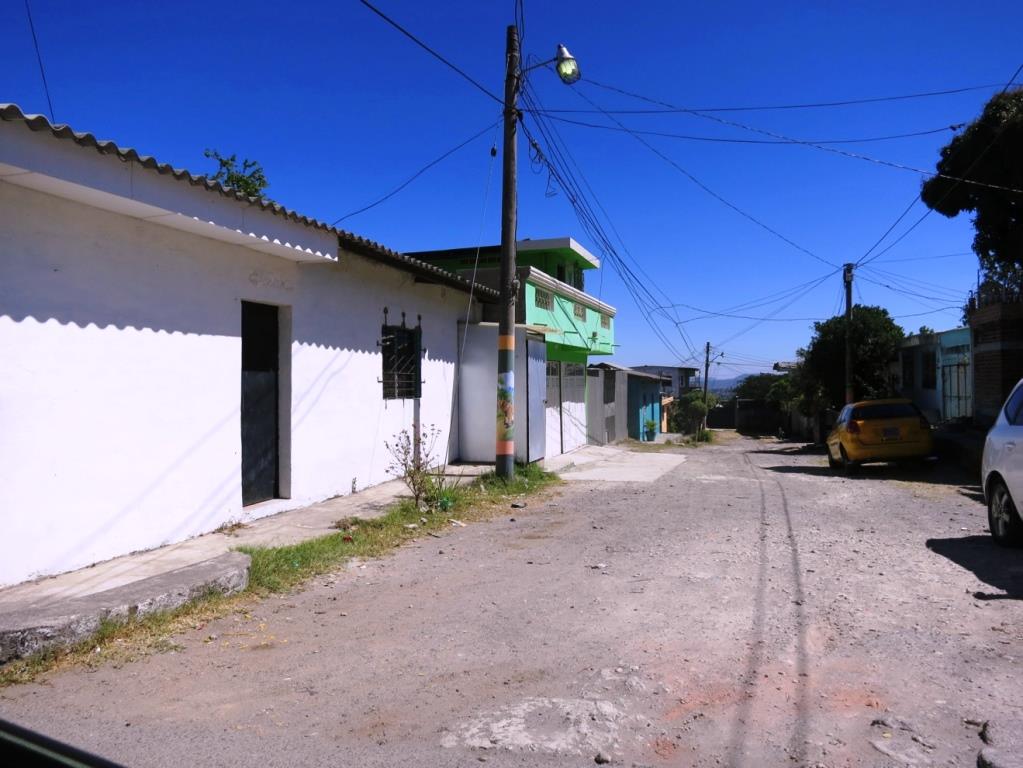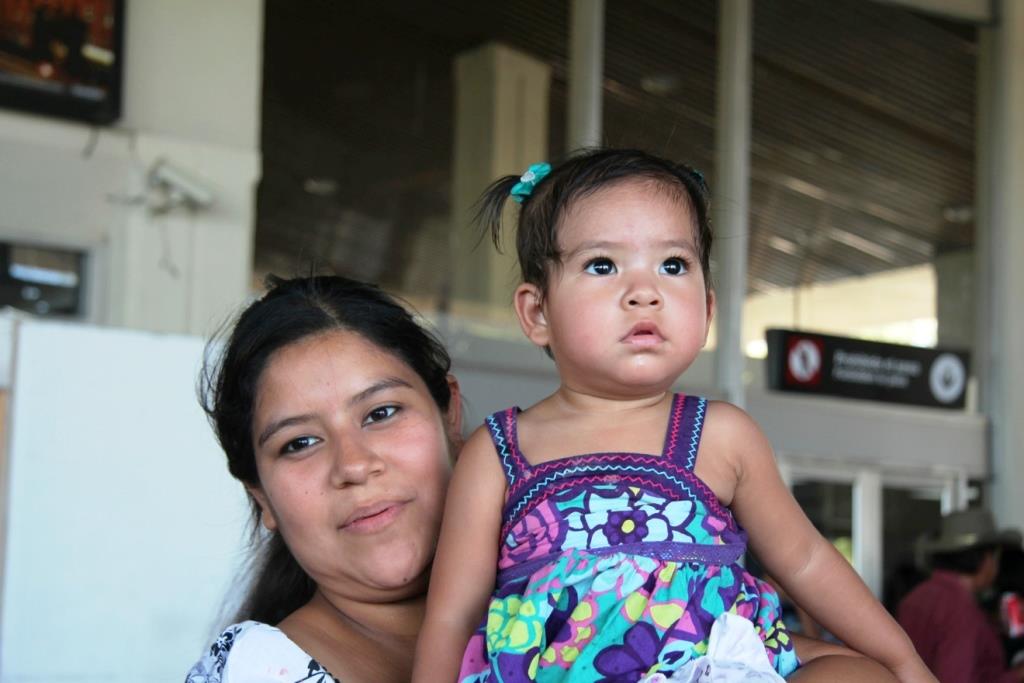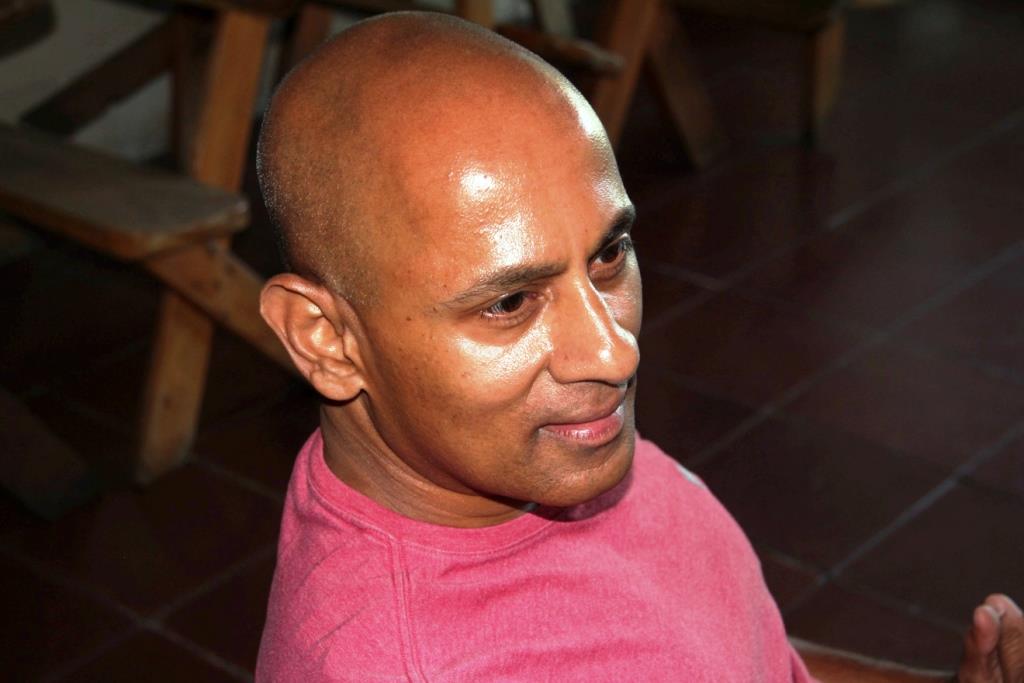Esta historia se escribe en Español = This story is also written in Spanish here.
“(The Salvadoran people) invite you not only into their homes but into their lives.”

Editor’s Note: Dwayne was an unexpected gift to us. We expected to interview his colleague Anna Grieg at the Soya Program in the San Ramon neighborhood of San Salvador. While waiting for her to arrive, we had the privilege of speaking with Dwayne who works in tandem with her. This devoted Maryknoll missioner works both here providing nutritious supplemental food to marginalized families living in this dangerous gang-infested neighborhood and working with the HIV/AIDS group in another section of the city.
Where do you call home?
My family is in India. I have citizenship there. I have a green card from the U.S. where I lived, studied, and worked. I did a year’s residency at York Hospital in York, Pennsylvania, after spending some time in Europe.
What is your formal area of training?
My chaplaincy dealt with grief counseling and trauma counseling.
What transformative experience was responsible for your ending up here in El Salvador?
In 1994 when I came to the U.S. as an illegal, I needed to work at Dairy Queen and wait tables for cash while waiting for my paperwork for citizenship. I was always looking over my shoulders for authorities. That experience put me in touch with what happens everywhere to illegals and is part of what brought me here to El Salvador so I could experience both sides of the immigration issue. I wanted to see the reverse of it. Living in the U.S., I was confused at first when I would see Latino people carrying big bags of groceries on the bus. I know now what that means to need to walk everywhere when there is no transportation. I wanted to come here to feel that reverse immigration in order to understand all the dynamics and issues involved.
What surprises did you learn about yourself when you came to El Salvador?
Coming to El Salvador you get stripped of your previous values and beliefs as soon as you arrive to become one with the culture. My sense of materialism has changed me completely. In the U.S. I would have had new shoes by now, but here I am comfortable wearing the same ones; this makes me feel one with the people.
It challenges my faith daily. It makes me aware of the reality – seeing poverty at its lowest and people crying out for help, people in need of assistance. It makes me environmentally conscious such as how much water I use. Some people get water only twice a month, and that impacts me. I make efforts to save water and save electricity because it seems like a splurge when I see my neighbor getting it only twice a month.
Can you share how you divide your time working here?
I spend about two or three days a week here at the Soy Project and about the same amount of time with the HIV/AIDS community.
You mentioned you are trained in grief and trauma counseling. Do you use those skills here in the San Ramon community working with the families affected by gang deaths?
I have no background or training in working with gangs. So many others here are already working with the gang population. I prefer to focus on the HIV/AIDS community where need of support is so great.
What background do you have for working here at the Soy Project?
I am a trained chef, so Ann and I make a great team providing nutritious supplements and training for the families living in poverty in this community. We are trying to be self-sustaining by working on a marketing and sales plan in order to subsidize the free program that exists.
How long do you plan to stay in El Salvador?
A Maryknoll missioner signs a three-year contract which can be renewed. I need to return to the U.S. to re-apply for citizenship and take care of some visa requirements, and then I hope to extend my contract with Maryknoll to remain here indefinitely.
People ask me why I want to remain here in El Salvador, and I think the joy of being with the people is so intense that the threat of violence is secondary to the happiness I experience.
What measures do you take to protect your safety?
People within this community have seen my face for a little while and are accustomed to me. Still, when I am doing errands, I generally do them with local women accompanying me.

How would you describe the Salvadoran people?
Welcoming! They invite you not only into their homes but into their lives. Family values are huge here.

How do you balance the intensity of your work with your personal life?
I stay athletic by going to the gym five times a week.
Now that you HAVE lived on the reverse side of immigration, what have your learned?
I’ve lived the life of an illegal. It is so cruel the way the immigration system in the U.S. is working now. These people are NOT coming for a better life. They are coming just to stay alive! If they stay here, they will be shot dead. They have nowhere else to go. Latinos are treated so poorly.
What hope do you have for El Salvador?
Given my background in chaplaincy in dealing with death and dying, I find hope is subjective in a country that changes from one person to another. More than hope is journeying with the people and being with them where they are. I can’t bring hope or say things will get better. I can journey to be with them and identify with their sufferings and walk in their shoes. I have faith which is different than hope. Faith is the cross. You have to go with Jesus to the cross and not expect miracles but expect that God will walk with the people. The Resurrection happens in small or large portions. There are lots of Good Fridays.
The Salvadoran people have lots of faith when they allow their children to leave because they have more faith than hope. They know chances are great that they will never see their children again. “God knows what He does” is their belief.
What sustains your soul?
The vulnerability experience here. It is total surrender to Christ in knowing someone is watching over me.



